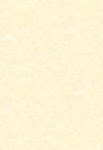You always hear the quran is all perfect, fully detailed and complete, leaves no stone unturned, no butt unwiped, etc, and then you come to this:
(2:253) Of all these apostles We have favoured some over the others.
(2:285) The Prophet believes in what has been revealed to him by his Lord, and so do the faithful. Each one believes in God and His angels, His Books and the prophets, and We make no distinction between the apostles.
Zoom in for a closeup of that. Focus on the part about the apostles.
(2:253) ... We have favoured some over the others.
(2:285) ... We make no distinction
In words of three syllables, Shee--yi--et!
I can't do it. We need a believer to come in here and warp the space-time continuum so those lines don't contradict each other.

5 comments:
that would require a naked singularity, a warp drive and scotty on a whole boatload of crack.
It never ceases to amaze me how the Koran makes no sense. At least the Bible is poetic and sounds as if what it says there matters. The Koran sounds as if somebody was high and wrote down his delusions.
Hey, it's pretty easy to rationalize this crap. "We favor certain apostles over others" = We like drinking beer with certain apostles - "we make no distinction" - every piece a crap an apostle says has exactly the same amount of divine cred.
See? Easy.
Hah! You thought it was impossible to justify a straight contradiction. Math guy comes to the rescue of the quran with yet another ill-justified transplantation of a mathematical concept.
This one is called the Axiom of Choice. It says "I can choose a member of a collection, distinguish it from the rest and select it, even if I have no criteria for doing so." Every time a math person says "Consider an arbitrary element x from the collection Y", he/she is invoking the axiom of choice.
With the axiom of choice, it is possible to say "there is a way to take a ball, cut it up in a way that we can't give you directions for, and put it back together so that it's twice the size it used to be."
But without the axiom of choice, it is quite possible to say "there are two collections of mathematical objects such that when you list them together, they disappear".
Both conclusions are obviously stupid. If you want both of them to be false, you'd have to say "the axiom of choice is neither true nor false". People have issues with that.
I may be wrong, but I do believe it would be possible to formally set up a proper universe of discourse and do all the math stuff right so that the following two statements would be equivalent in their logical structure (for math geeks, isomorphic in some way)
a) "Choose some elements x from a set Y without any criteria for distinguishing each x from the other"
b) "Favor some apostles over the other without a means of distinguishing them".
If this makes a part of the quran make more sense, it might be a compelling argument against the axiom of choice.
If it doesn't, it might be a compelling argument against my ever doing math again.
Also Freidenker85's version works too. It's shorter and relies on the same kind of word twisting rationalization.
Post a Comment